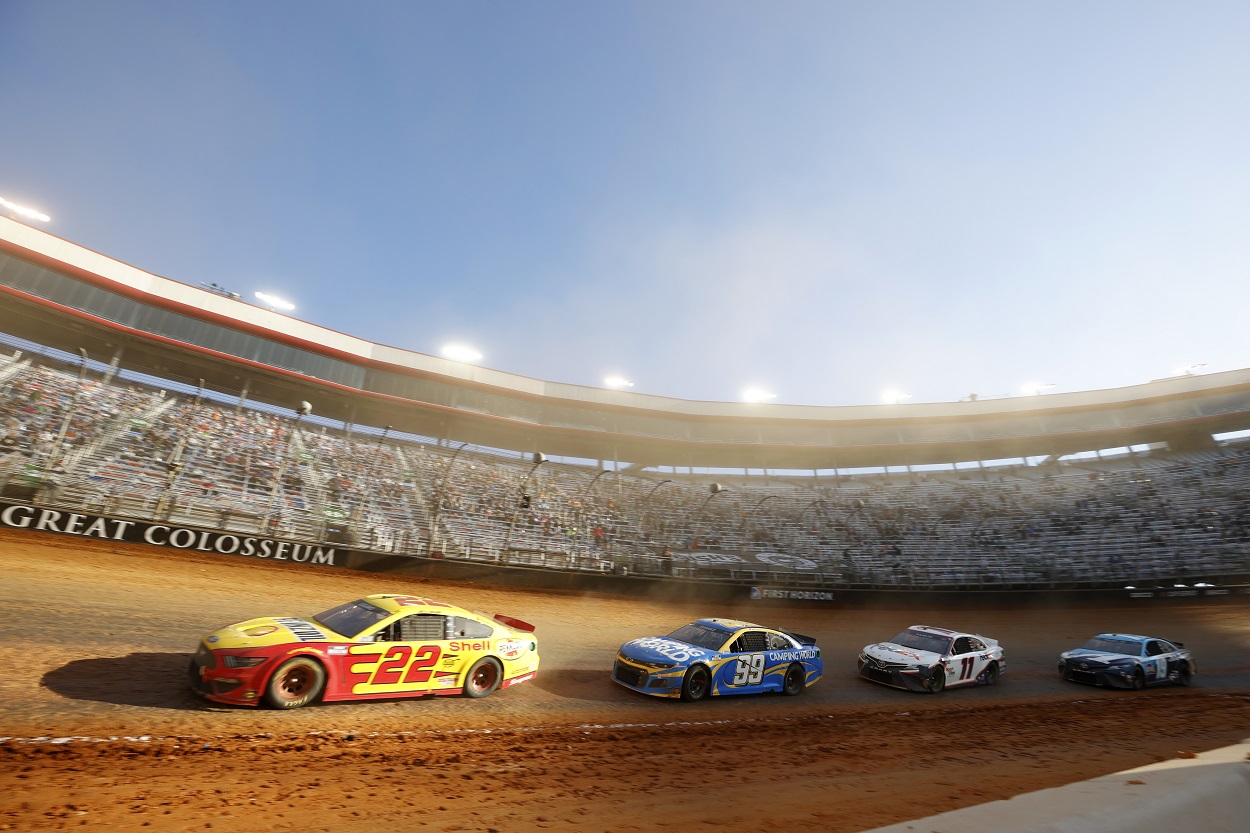NASCAR
Bristol Dirt Race Could Expose Familiar Problem With NASCAR Cup Series Playoffs

The Bristol dirt race represents one of the most unique ideas NASCAR leadership has had in many years. It is generally fun and different from a typical race weekend, but it also raises an integrity dilemma that used to hound the sport because of other unique tracks until recent years.
Many fans had long complained that the Cup Series schedule was stale. It had not changed much in two decades for various reasons, including multi-year agreements with the sanctioning body and the fact that most tracks were owned by publicly traded companies that required investor approval to make big decisions.
Both of those factors changed within the last five years, and now NASCAR is mostly free to adjust the schedule as it sees fit. That led to an explosion of road-course races from three in 2019 to seven in 2021. It also provided a path to try something new at one of the sport’s most-historic short tracks.
NASCAR Cup Series brought back the dirt race at Bristol in 2021

The NASCAR Camping World Truck Series had run one race per year at the Eldora Speedway dirt track from 2013 to 2019, but both the trucks and Cup Series cars took to Bristol’s high banks with the half-mile track’s concrete covered in dirt for the first time last year.
As with any new experiment, predictions covered a wide range of possibilities about the quality of the races. Some people said it would be a disaster to have vehicles as heavy as Cup Series stock cars on a dirt track, while others thought it might be one of the most exciting events in recent memory.
The actual weekend settled somewhere in the middle. Rain plagued on-track activities throughout the weekend. NASCAR had to push both races to Monday because of the rain, and mud on the grills and windshields of the vehicles was also a problem at times.
Otherwise, the competition was close and intense, making for a quality race. The track proved to be successful enough that NASCAR doubled down and put the dirt race back on the schedule for the 2022 season.
Bristol dirt race faces the same questions road course events once incurred
The problem with the Bristol dirt race might not be the quality of the event but what it means to the schedule and overall championship battle.
One of the most frequently recited complaints about the long-standing NASCAR schedule was its two road-course races during the season, one each at Sonoma and Watkins Glen, but lack of inclusion during the 10-race playoffs that determine the champion.
The idea was that a road-course specialist could win one of the road-course events and qualify for the playoffs and therefore have a chance to win the championship despite the driver’s ability on the variety of oval tracks that made up the rest of the schedule.
Also, the series had a situation where drivers were tested on road courses during the regular season but not in the postseason. One way or another, it didn’t add up.
NASCAR addressed those concerns in 2018 when it shifted the playoff race at Charlotte Motor Speedway from the oval to a road course that incorporated parts of the oval and wound through much of the track’s infield. Drivers would then have to excel on all types of NASCAR tracks throughout the year to have a chance to win the title.
The same issue now exists with the Bristol dirt race. It is the only dirt race on the schedule and requires a much different driving style than a paved track.
Several drivers nearly turned last year’s race into a playoff berth
Joey Logano won the race and likely would have made the playoffs regardless, although it was his only win of the season. But others had nearly their entire season’s worth of success in that one race. Ryan Newman scored one of his two top-five finishes in the dirt race a year ago, while third-place finisher Ricky Stenhouse Jr. and fourth-place Daniel Suarez didn’t finish in the top five again the rest of the season.
Had one of those drivers won, they would have made the playoff field despite nowhere near that level of success anywhere else throughout the season.
The enjoyment the Bristol dirt race brings drivers and fans is great, but NASCAR has placed itself right back in the same box it had with road courses for so many years.
Maybe the playoff format is too much of a gimmick to rightly crown a champion anyway. But, if championship integrity does actually matter, perhaps NASCAR should look at either adding a dirt race into the playoffs or save the dirt for an exhibition event that can still be fun but won’t distort each season’s playoff picture.
All stats courtesy of Racing Reference
RELATED: NASCAR Next Gen Preview on Bristol Dirt Shows Much-Improved Product From Last Year











